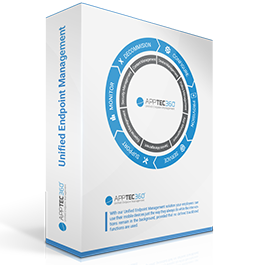When it comes to the new GDPR/EU-DSGVO, companies are reigned in on the topic of data protection: no passing on of personal information without the person’s consent. However, only when private and business data is separated, the mobile device can conform to the segregation of corporate data, with the presence of such nosy Apps as Facebook and Co. Therefore, the timing could not be more perfect for Apple to offer precisely this feature in their new iOS 11.3 – thereby closing an important data protection loophole.
It was not until the Facebook scandal broke that many users were reminded of once again or introduced to how their vulnerable private information is being spied upon, once they operate an internet enabled device. Each App requires its own set of access permissions, which include amongst other things, the PIM data (Personal Information Manager). What then happens with such personal data such contact, email, calendar and others, is not always in the user’s best interest, as the Facebook-Analytica-Case proves.
What has already become a nuisance for private consumers, could soon grow into a serious Compliance-Problem for companies. That is because the new EU Data Protection Regulation (GDPR/EU-DSGVO), which becomes effective starting May 25th, 2018, prohibits companies, amongst other things, to transfer their customer’s private data without their consent.
Soon one simple Policy will suffice for the Separation of Data
For example, someone who uses WhatsApp allows the service to access all of the smartphone’s contact data – did you receive permission from your contacts for this? Therefore, even as a private user you are operating illegally. Dr. Lutz, the Thüringen National Data Protection Appointee, recently brought this fact to light. Should one of your employees store business contacts on their private phone, that is then connected to WhatsApp, then your company is committing a data breach as outlined in the GDPR/EU-DSGVO – which is accompanied by the now too famous complicated and expensive consequences.
The only thing that can truly help in this situation, is the strict separation of personal and corporate data on mobile devices. Whether or not it is coincidence or the first result from the Facebook-Scandal – Apple and its iOS11.3 has made it possible for companies, that manage their mobile devices via an Enterprise Mobility Manager, to deny access via the OS to the PIM-Data by WhatsApp and Co. Here, the Apple-Manager differentiates between Apps that are either managed or not managed by the EMM. Even individual accounts within the Apple-Mail-App can be defined by a manager. This way, the selected Apps and Accounts must simply be segregated from data sharing with the other apps and accounts, via a Policy that is defined in the AppTec-EMM – and the desired separation of the two data spheres has already been accomplished.
More security with iOS Inbuilt Security
Up until now, private and corporate data could only be separated on Apple-Devices with a detour through a third party solution, such as AppTec, which uses their Enterprise Mobility Manager for this purpose. These solutions create a container for corporate data, to which unauthorized people or apps, such as WhatsApp and Co, are not granted access. EMM-Users are not only offered an easier user experience with the new iOS-Version’s Built-In-Container, but they also save money, by eliminating the licensing fees.
On Android Devices, the separation of private and corporate data has been preprogrammed for quite some time now, which can be utilized via the management tool Android for Work on the AppTech-EMM’s console. The Android-Manager encrypts the data that is managed in the Apps and their connections. This means, that WhatsApp and Co can not access the data. Alternately, the Administrator only has access to the Apps that are installed via the EMM and the data that is contained within them – private Apps are left excluded.
About AppTec
With its Enterprise Mobility Manager, AppTec supports businesses in intelligently managing their plethora of corporate or private smartphones, tablets and laptops, in a controlled manner. The solution for the managing and securing of mobile end user devices differentiates itself with a management console that is intuitive and offers a number of useful security functions. Here, the customer has the option of using their internal servers or AppTec’s Cloud-Based Option, which runs on servers that are located exclusively in Switzerland and Germany. The company, which was founded in 2011 in Basel, has already managed to amass 3800 customers with their compact and easily accessible “Mobile-First-Solution”. AppTec is a leader in the current Crisp Vendor Universe Quadrant 2018 and has been recognized multiple times as a leading solution.
Please visit www.apptec360.com for more information

